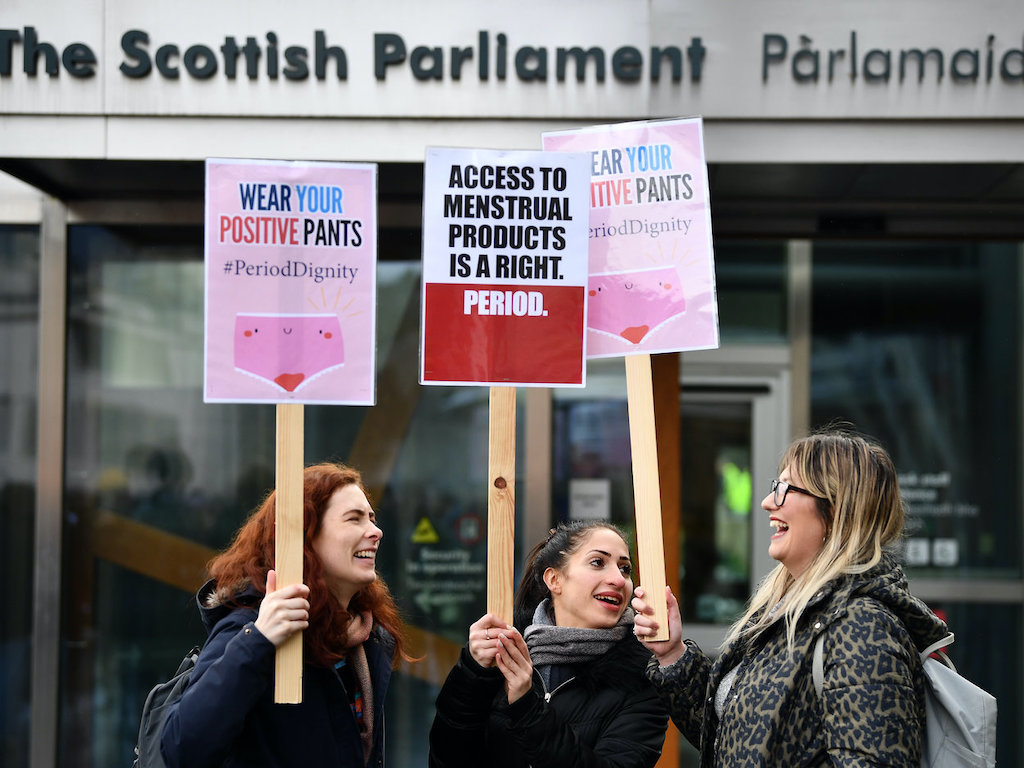3 Mins Read
Scotland has become the first nation in the world to offer free period products to all, following a four-year campaign to promote the open discussion of menstruation and tackle the widespread yet often silenced issue of period poverty. The new law will place a legal duty on local authorities to make period products available for all women, girls and people who menstruate amidst the ongoing coronavirus crisis that is threatening to reverse progress on gender inequality globally.
Scottish ministers have unanimously passed the Period Products (Free Provision) (Scotland) Act on November 24, placing a legal obligation on all local authorities in Scotland to provide free and universal access to period products. It followed a grassroots campaign led by Scottish Labour health spokesperson Monica Lennon, which has over four years garnered widespread support from the public to shift the discourse around menstruation, period poverty and gender inequality.
A few years ago there had never been an open discussion of menstruation in the Holyrood chamber and now it is mainstream.
Monica Lennon, Scottish Labour Party MSP
“This will make a massive difference to the lives of women and girls and everyone who menstruates. There has already been great progress at a community level and through local authorities in giving everyone the chance of period dignity,” said Lennon, in conversation with the Guardian.
“A few years ago there had never been an open discussion of menstruation in the Holyrood chamber and now it is mainstream. MSPs have enjoyed being a part of that, and it has encompassed the menopause, endometriosis, as well as the types of products we use and their sustainability.”
The new legislation in Scotland will also make it compulsory for schools, colleges and universities to provide period care products for free. It builds on top of a previous move by the Scottish government to begin delivering free period products to low-income households in Aberdeen, and to roll-out the scheme in local councils, which began in 2017.
Nonprofit organisations have highlighted that such provisions are in greater demand than ever before due to the coronavirus pandemic, which has exacerbated the issue of period poverty, whereby underprivileged communities – many of whom have had to experience pay cuts or lay-offs – are struggling to pay for basic sanitary products like pads and tampons on a monthly basis.
It’s an important message in the middle of a global pandemic that we can still put the rights of women and girls high up the political agenda.
Monica Lennon, Scottish Labour Party MSP
Research two years ago conducted by Women for Independence showed that nearly one in five women experience period poverty – with many experts suggesting this figure is likely to have increased over the recent months.
In July this year, a United Nations report warned that the pandemic could be putting at risk the decades of progress the world has made regarding the hunger, poverty and female empowerment, and said that first and foremost, it will be the poorest and the most vulnerable communities in the world – children, elderly, displaced peoples and women – who will be hit the hardest by the socioeconomic and health impacts of the coronavirus.
Lennon told the Guardian that the move by Scotland should set an example for the rest of the world. “It’s an important message in the middle of a global pandemic that we can still put the rights of women and girls high up the political agenda.”
Lead image courtesy of Jeff J Mitchell / Getty Images.




